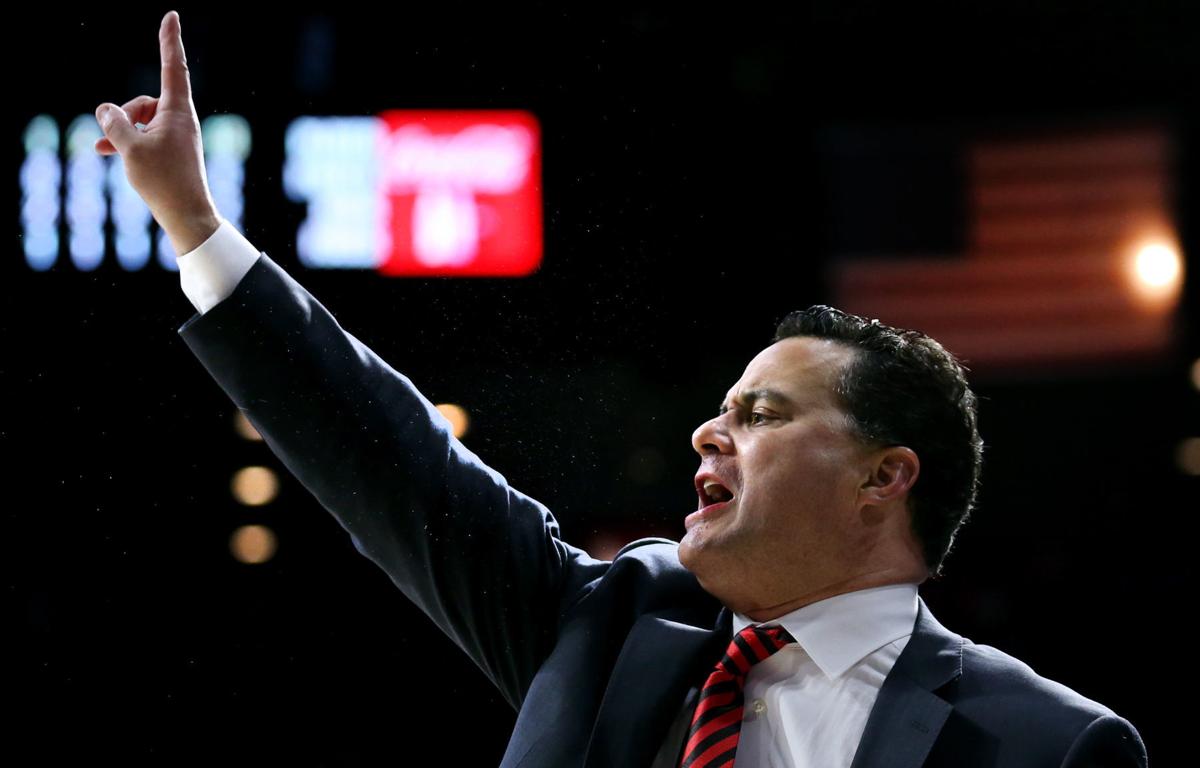Defense attorney Steve Haney told a U.S. District Court judge on Friday that there is evidence that "establishes very clearly that Sean Miller is paying players in Arizona," according to a transcript of the pretrial conference held in New York.
In a hearing that resulted in a denial of Haney's request to have the UA coach and LSU coach Will Wade testify during the upcoming federal bribery trial, Haney told Ramos that the two head coaches are "engaged in systematic cheating at the highest level."
Haney said the prosecution is aware of such evidence. Haney argued that if Miller was willing to play players, then he would have more influence over a player than an assistant coach would. Miller's former assistant, Book Richardson, was initially charged with accepting $20,000 in bribes from Haney's client, Christian Dawkins, and his partner, Munish Sood. Dawkins and co-defendant Merl Code are facing felony bribery charges. They are scheduled to go on trial starting Monday.
As Haney continued to speak about Miller's potential influence, judge Edgardo Ramos interrupted.
"I'm sorry. I want to stop you for a second," Ramos said. "So you have information tending to establish that a head coach was paying his players?"
Haney: "That is correct, this particular head coach, at Arizona, yes."
Ramos: "And did your client have knowledge of that?"
Haney: "He did. He had knowledge of it."
Ramos: "At the time?"
Haney: "Yes, he did. And not only did he have knowledge of that, but my point is, if anyone had influence," it was the head coach.
Haney later argued that Miller's influence over prospective and current players made him a relevant witness. Assistant U.S. attorney Eli Mark argued there might be a lot of people influencing a player.
"The question here is really whether the defendant bribed certain people who had influence over that decision," Mark said. "Book Richardson is one. There is no allegation here in this case that the defendant bribed, for instance, Sean Miller, the head coach at Arizona."
Mark, the prosecution's attorney, compared it to a drug dealer who has a relationship with two different distributors but decides to only supply one of them. In that case, he said, the conduct of the other distributor is not necessarily relevant.
"So I think largely this goes outside, meaning it becomes irrelevant," Mark said. "And the fact that Mr. Haney is talking about two coaches engaging in systemic cheating, I think, sort of goes to the broader concern of what he is looking to do. This sort of opens the door into all sorts of other extraneous issues that are outside the scope of the sort of core issues here, which is whether the defendant did or did not engage in a conspiracy to commit bribery with these particular coaches."
The judge agreed with him, and granted the prosecutors' motion to keep Miller and Wade from testifying. He said, however, the motions "are subject to being revisited depending on how the evidence at the trial plays out."





